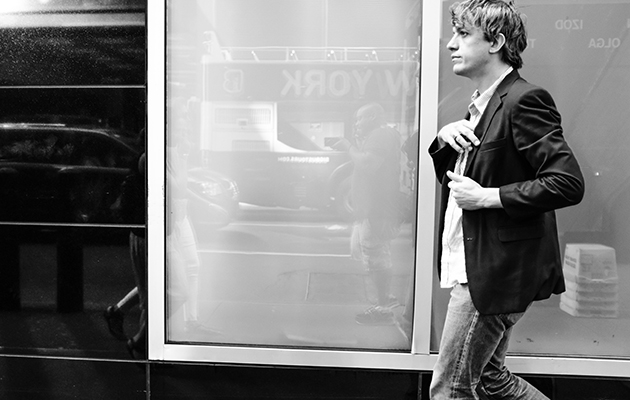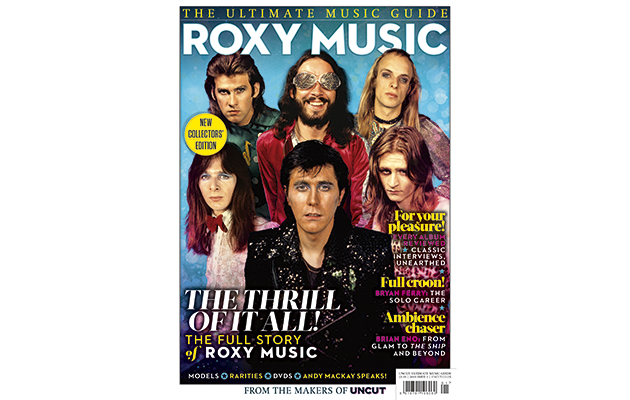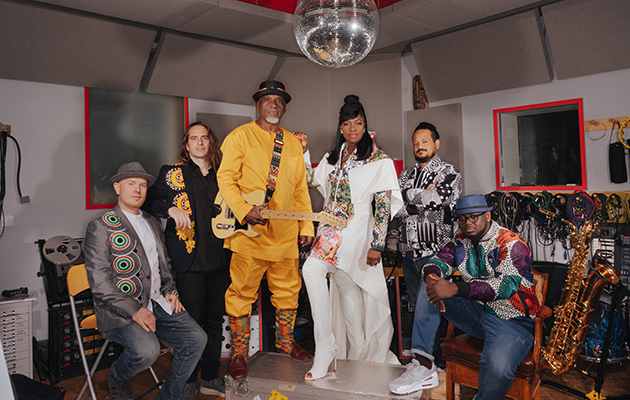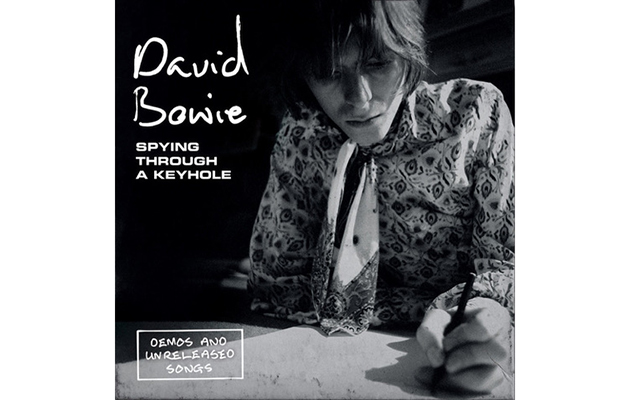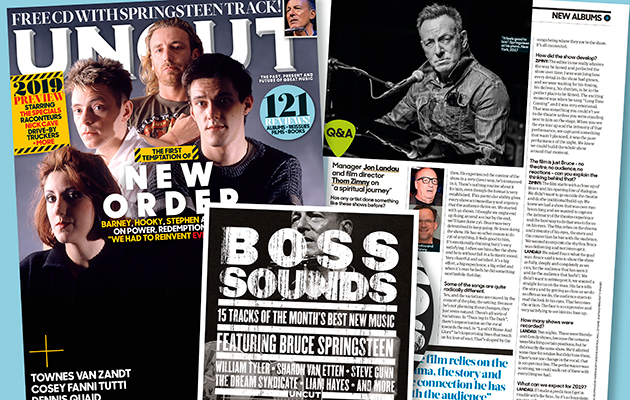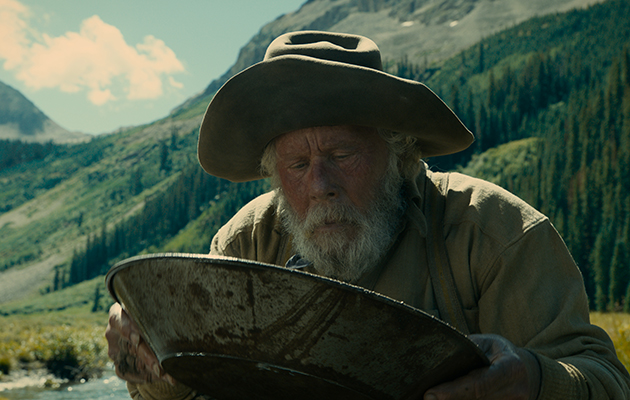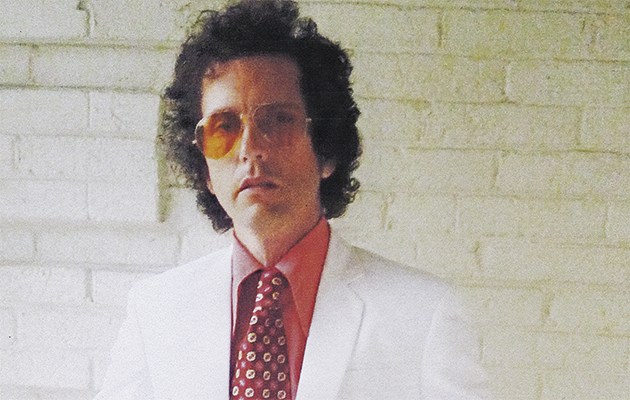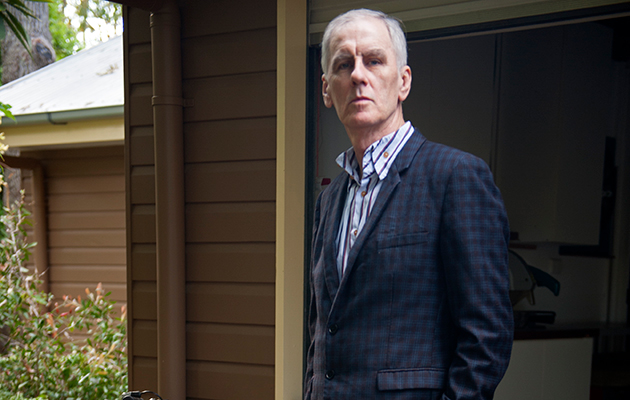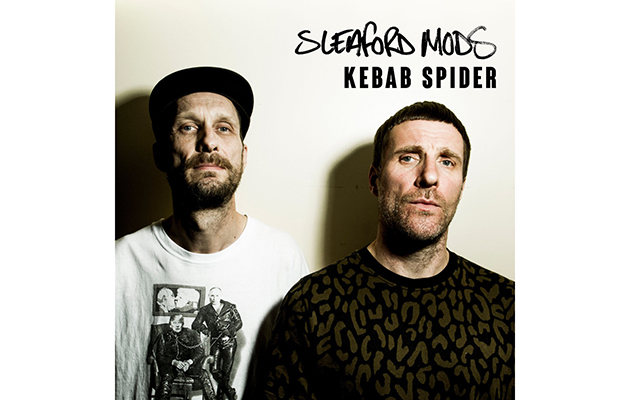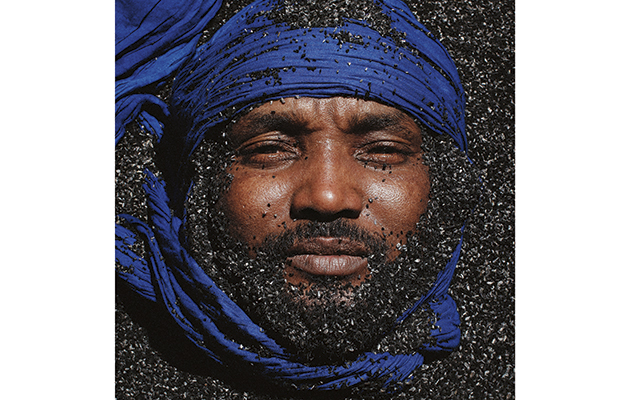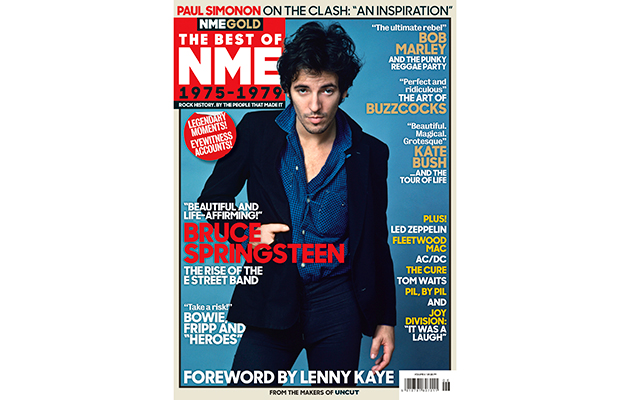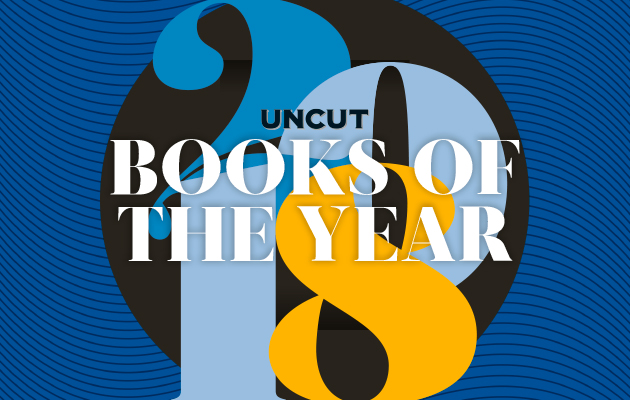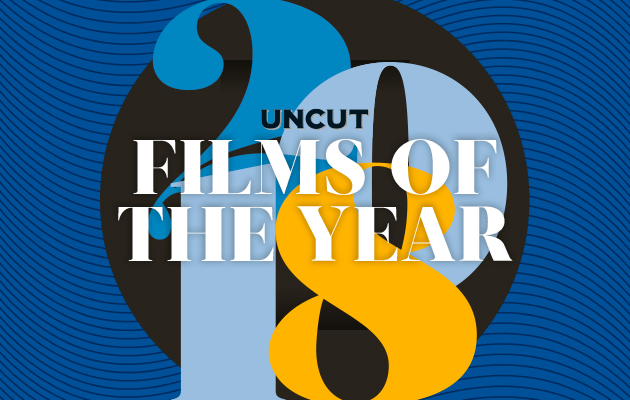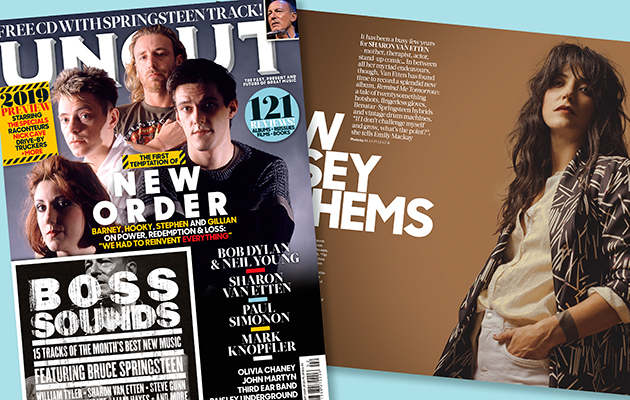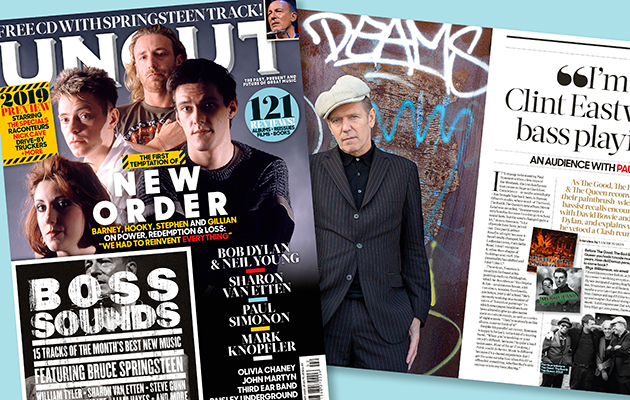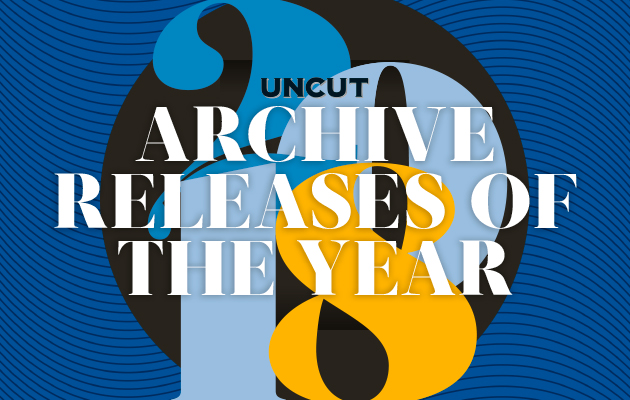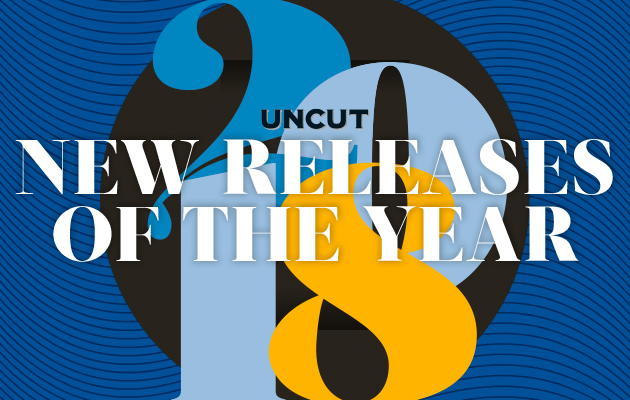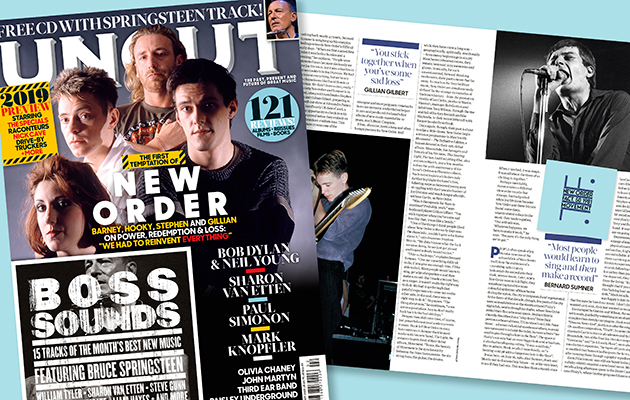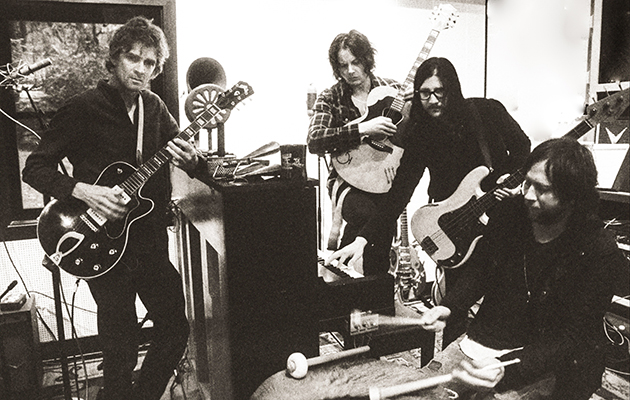50
THE NECKS
Body
The latest from keyboardist Chris Abrahams, bassist Lloyd Swanton and drummer/guitarist Tony Buck was their most thrilling yet, the Australian trio hitting an extended motorik gallop at the halfway point. At times reminiscent of Mogwai jamming with Michael Rother, at others dabbling in their customary jazzy ambience, Body shows that The Necks can still surprise, even on their 20th LP.
49
MARY LATTIMORE
Hundreds Of Days
2018 saw this LA harpist not only team up with Meg Baird for the experimental folk of Ghost Forests, but also bend her instrument’s 47 strings to Hundreds Of Days, a blissfully ambient solo work. With Lattimore looping her harp, and seasoning it with synth, piano, guitar and voice, she evoked the sublime textures of New Age tapes, and the timeless drones of Eno and Oliveros.
Order the latest issue of Uncut online and have it sent to your home!
48
LAURA VEIRS
The Lookout
Five years after her last record, Veirs’ 10th album provided a welcome reminder of the heights the Portland-based songwriter can reach. Her husband Tucker Martine was again producing, while Sufjan Stevens, Jim James and Karl Blau helped out with vocals, but the real stars here were Veirs’ lyrical, romantic songs, whether hushed and elegiac (piano-led “The Meadow”) or supremely crafted (“Everybody Needs You”, with its dub echoes and drum machine).
47
JULIA HOLTER
Aviary
Have You In My Wilderness, Uncut’s Album Of The Year
in 2015, tempered Holter’s more experimental roots with the influence of classic Canyon songwriting. Its follow-up Aviary, though, makes no such concessions as, across 90 minutes, Holter sketches out free-jazz freakouts, droning electronic tones and heady lyrics inspired by Sappho and medieval texts. Difficult and awkward, but full of delights.
46
KATHRYN JOSEPH
From When I Wake The Want Is
Arriving fully
formed with her 2015 debut, Glasgow-based pianist and songwriter Kathryn Joseph returned with an even stronger effort this year, inspired by a temporary break with her long-term partner. As expected, it was
a bleak but intoxicating listen, with the singer’s broken, skeletal piano lines and anguished vocals on “And You Survived” recalling Thom Yorke, and “Mouths Full Of Blood” trying out the fractured jazz of Mark Hollis or Robert Wyatt.
45
ANNA CALVI
Hunter
Calvi’s long-awaited third album was her most intense and hard-hitting yet, exploring the restrictions of gender roles over her most ambitious music to date – “Swimming Pool” recalls Scott Walker, and “Chain” channels the Banshees at their most psychedelic and anguished, while the opening “As A Man” reconfigures Nick
Cave’s “Red Right Hand” for Roxy Music. The stripped-down “Away” shows that Calvi can do quiet too: “There is a rage in the sky/Is this the
moment sublime?”
44
RYLEY WALKER
Deafman Glance
“I didn’t want to be jammy acoustic guy any more,” wrote Walker, introducing this album. “I just wanted to make something weird and far-out that came from the heart.” So while Deafman Glance wasn’t as instantly seductive as Primrose Green or Golden Sings…,
its vexed, meandering narratives felt like a more accurate reflection
of its mercurial creator, casually blending jazzy Chicago post-rock with country desolation.
43
TRACY THORN
Record
Having been releasing stellar music for almost 40 years, Thorn would have been forgiven for relaxing a little on her latest; instead, though, she produced a set of shiny, graceful electro-pop with help from Warpaint, Shura and Corinne Bailey Rae, her lyrics discussing the joys of drunk dancing, the various obstacles that women face in our society (“Sister”), and her children (“Babies”): “Lay your pretty hair down/Get the fuck to bed now,” she sings wryly.
42
MELODY’S ECHO CHAMBER
Bon Voyage
Burnt out creatively and personally, Melody Prochet headed to Sweden to record her second album with members of Dungen. The result was perhaps 2018’s most freewheeling and eclectic set, taking in Gainsbourg grooves, lounge jazz and sample-heavy hip-hop – and that was just the first track, “Cross My Heart”. Elsewhere there were hints of The Breeders and Tinariwen, and riffs inspired by Black Sabbath, the whole coalescing to reflect Prochet’s fearless, questing vision.
41
CAT POWER
Wanderer
After 2012’s Sun,
an ambitious, if awkward, pop record, the old Chan Marshall re-emerged for Wanderer, happier and more relaxed on new label Domino. The textures were familiar, sure – the sparse piano on Rihanna’s “Stay”, the country desolation of “Robbin Hood”, and the widescreen gospel of “Wanderer/Exit” – but the overall result, a slim but addictive 38 minutes, was one of Marshall’s best.
ON THis month’s CD
40
ARCTIC MONKEYS
Tranquility Base Hotel + Casino
Following 2013’s huge-selling AM, Alex Turner and co could have conquered the world, but instead they headed for the moon, crafting this audacious concept album seemingly about a lounge crooner on some futuristic lunar colony. Turner’s long tried
to ape Nick Cave and Dion, but
on the likes of “American Sports” and “Golden Trunks” he hit upon
a style of noirish, plastic-soul balladry all his own.
39
ELEANOR FRIEDBERGER
Rebound
After perfecting
a stately folk-rock sound on 2016’s New View, the former Fiery Furnace took
a different tack on her fourth solo album; inspired by an extended
stay in Athens, and specifically
a goth club she was taken to in the Greek capital, Rebound was all drum machines and woozy,
vintage synthesisers. At its warped heart, though, lay Friedberger’s most characterful songs yet, from the galloping “Everything”
to the fidgety, Furnaces-like “Are
We Good?”
38
CALEXICO
The Thread
That Keeps Us
Swapping the Arizona desert for
the lusher environs
of North Carolina, Joey Burns and
John Convertino made their most straight-ahead rock record since 2006’s Garden Ruin. Of course,
this being Calexico, it’s still a heady mix, containing some venerable songwriting on the Wilco-esque rush of “Bridge To Nowhere” and the Neil Finn-like “Girl In The Forest”, not to mention some of their usual genre-bending on the horn-assisted disco-psych of “Under The Wheels”.
37
STEPHEN MALKMUS & THE JICKS
Sparkle Hard
Four years after Wig Out At Jagbags, and with a whole host of young artists now in thrall to his loose, literate sound, the former Pavement frontman and his band returned with this effervescent LP. “Rattler” found Malkmus dabbling with auto-tune, but the rest was reassuringly familiar, from the lysergic assault of “Bike Lane” and the bittersweet chamber-pop of “Solid Silk”, to “Refute”, a country-rock cousin of “Range Life” featuring Kim Gordon.
36
THE LEMON TWIGS
Go To School
The Lemon Twigs’ second LP was, yes, an epic rock musical about a school-attending chimp
called Shane, as much Rodgers & Hammerstein as Rundgren. Yet
the story was just funny enough to work, and the songs, performances and arrangements superb, whether the D’Addario bros were trying out picture-perfect Big Star power pop (“Queen Of My School”) or Van Dyke Parks balladry (“Wonderin’ Ways”).
35
GO KART MOZART
Mozart’s Mini Mart
Lawrence’s latest might have come out at the same time as the first set of Felt reissues, but it was as impressive. Glam-synth stompers such as “When You’re Depressed” bounced along musically, but touched on very dark topics – see Clavi-funk cut “A Black Hood On His Head”, seemingly about Isis killings. And who could resist songs titled “Crokadile Rokstarz” or “Knickers On The Line By 3 Chord Fraud”?
34
HOOKWORMS
Microshift
As we went to press, this West Yorkshire quintet had just split after allegations of abuse involving frontman MJ; nevertheless, their third record was their bravest
effort, with songs about the 2015 Leeds Boxing Day floods that destroyed their studio, and about Alzheimer’s, cancer, death and broken relationships. Lightening the load was a new, more electronic sound, with synths and loops replacing shoegazey psych-rock on “Negative Space” or the hypnotic kosmische of “Static Resistance”.
33
CONNAN MOCKASIN
Jassbusters
The Kiwi auteur’s third solo album was the soundtrack to his own short film series, Bostyn ’n’ Dobsyn, which Mockasin co-wrote and starred in. Divorced from this Lynchian, slightly creepy series, though, Jassbusters still delighted; recorded live and stripped down in
a Paris studio, these eight tracks of hushed soul, led by Mockasin’s koto-inspired guitar leads and ad-libbed vocals, were otherworldly.
ON THis month’s CD
32
GWENNO
Le Kov
Gwenno Saunders’ second LP was sung purely in Cornish, inspired by both her upbringing and the government’s decision to cut school funding for the minority language. To show the language is living and breathing, she harnessed it to a gauzy set of psych pop, with crisp drums, bass and piano woven between all manner of synths and organs. Broadcast, Jane Weaver and Gruff Rhys (the latter featuring) were touchstones, but Le Kov showed that Gwenno could match those artists.
31
GAZELLE TWIN
Pastoral
Elizabeth Bernholz’s third LP as Gazelle Twin found the Brighton-based musician examining Englishness through a nightmarish melange of folk and electro, cut up and pitch-shifted to ghoulish extent. The 14 short tracks flowed tightly, functioning more as a soundscape or radio play than an LP – perfect for Bernholz’s freewheeling message, then, which drew from William Blake and the perpetual call of the elderly (“Better In My Day”).
30
MÉLISSA LAVEAUX
Radyo Siwel
This Canadian singer-songwriter returned to her family’s roots on her fourth LP, inspired by the music of Haiti. The result was an intoxicating mix, with Laveaux singing in Creole and accompanying herself with some striking guitar.
Of the highlights, “Kouzen” has a minor-key lilt that sounds distinctly French – perhaps no surprise seeing as Laveaux lives in Paris – while “Twa Fey” is beautifully strange, its sound as thin and high as Laveaux’s reverbed vocals.
29
LET’S EAT GRANDMA
I’m All Ears
Rosa Walton and Jenny Hollingworth’s quixotic 2016 debut was hard to ignore, but their follow-up was the real deal; mixing together synth pop, weird folk and pumping dance, the pair, along with producers David Wrench, Sophie and Faris Badwan, created a thrilling and strange cosmic soup. Best of all was “Donnie Darko”, which moved from a plaintive ballad to Balearic slow-disco and back in 11 joyful minutes.
28
DIRTY PROJECTORS
Lamp Lit Prose
Following the auto-tune experiments and ugly recriminations of 2017’s self-titled effort, this was a swift return to form for the indie-rock brainiacs. Buoyed by new love and a (mostly) new band, Dave Longstreth drew on ’70s folk rock and neo-soul for this giddily upbeat affair; he remains the only songwriter around likely to compare his lover to the Archimedes palimpsest.
27
IDLES
Joy As An Act Of Resistance
The biggest thing
in British punk
rock for years, this
Bristol quintet put everything into their second album; thrashing guitars and ragged drums heightened Joe Talbot’s messages, whether he was calling out toxic masculinity on the Sonic Youth-esque “Samaritans” or writing about the death of his daughter on “June”. As the LP’s title suggested, these 12 piledriving songs documented a search for contentment and happiness in the face of a painful existence.
26
JOHN PRINE
The Tree Of Forgiveness
Not for nothing is John Prine one of Bob Dylan’s favourite songwriters; and the long-awaited The Tree Of Forgiveness didn’t disappoint. Dave Cobb was in the producer’s chair, with Jason Isbell and Amanda Shires contributing vocals and assorted instruments, but Prine’s lyrics, delivered in a moving, desolate croak, are the treat here: “Yeah, when I get to heaven, I’m gonna take that wristwatch off my arm,” he sings on the closing “When I Get To Heaven”.
25
COURTNEY MARIE ANDREWS
May Your Kindness Remain
Andrews’ sixth album was a strong follow-up to her breakthrough record, 2016’s Honest Life, and found the West Coast songwriter exploring a new intensity in the atmospheric production, and a new depth and tenderness in her songs. “There is always a reason/A story to tell,” she sang on “Border”, while on the title track she paints a picture of a friend “wearing loneliness like a costume for the whole world to see”.
24
PAUL WELLER
True Meanings
Hitting 60 after a savagely creative decade, Weller took some time to reflect, conjuring up these
14 tranquil and folky songs. The textures were homely, sure – hints of Nick Drake, Traffic’s more rustic material and his own Heliocentric (2000) – but True Meanings was all about the songs; from the waltzing live favourite “Gravity” and the soulful “Mayfly” to the majestic “Come Along”, featuring Martin Carthy and Danny Thompson.
ON THis month’s CD
23
KURT VILE
Bottle It In
MATADOR
The Philadelphia songwriter’s longest and most expansive album, Bottle It In seemed to stop time, inviting the listener to enter the guitarist’s gloriously woozy headspace for 80 minutes of ethereal indie rock. “Loading Zones” and country cover “Rollin’ With The Flow” were joyously immediate, but the real picks were the meditative 10-minute “Bassackwards” and the transcendent, circular “Skinny Mini”. Effortlessly unique.
ON THis month’s CD
22
FATHER JOHN MISTY
God’s Favorite Customer
After the grand scope of Pure Comedy, Josh Tillman’s fourth seemed modest by comparison; yet nestled within its 10 tracks were some of the songwriter’s finest songs, from the acidic, Beatles-y “Hangout At The Gallows” to the blown-out, twinkling title track. And forget wry songs exploring the whole of human history, God’s Favorite Customer instead found Tillman writing movingly about
his own personal struggles.
ON THis month’s CD
21
KAMASI WASHINGTON
Heaven And Hell
After 2015’s game-changing The Epic, the saxophonist refined his sound on this double album (triple if you count the hidden EP)
of interstellar jazz-funk. Along the way it took in kung-fu themes, a classic bebop cover and 10-minute symphonies incorporating lush choirs, heart-rending arrangements and some stunning performances from Washington and his crew – especially keyboardist Brandon Coleman and vocalist Patrice Quinn. Divine.
20
JACK WHITE
Boarding House Reach
If some thought they had Jack White pegged as a traditionalist, his third solo album set them straight – here, White and a carnival of diverse musicians explored hip-hop, garage gospel, spoken word, digital funk and musique concrète, often in a single song. While the eclectic, ragged results proved controversial with some, there was no doubt that this was a game-changer for White, and perhaps the start of an exciting and experimental new era.
19
COWBOY JUNKIES
All That Reckoning
Returning after
six years away, the Junkies’ latest was arguably their best since The Trinity Session 30 years before. A stately, quietly experimental record, All That Reckoning found the Timmins siblings and Alan Anton weaving tales of “mugging politicians” and
a “king of empty things”, with
stately arrangements and Margo Timmins’ peerless voice to the
fore. “And you can control hate,”
she sang on “The Things We Do
To Each Other”, “but only for so
long/And when you lose control,
oh man…”
18
THE BREEDERS
All Nerve
That All Nerve happened at all was
a surprise, being
the classic lineup’s first album together since 1994’s Last Splash; more of a shock, though, was just how strong these 11 songs were. Warped punk jolts such as “Wait In The Car” jostled with bleached miniatures like the title track, while Kim
Deal’s enigmatic lyrics (“ox bow, strange glow…”) and Kelley Deal’s primal guitar daubings made All Nerve wonderfully more than the sum of its parts.
17
COURTNEY BARNETT
Tell Me How You Really Feel
If her debut LP
cast Barnett as a genuinely funny voice, this follow-up showed a darker, more serious side to the Melbourne songwriter. The dejected trudge of the opening “Hopefulessness” set the tone, and the most immediate cut, “Nameless, Faceless”, took on male oppression and violence against women. Musically, there were allusions to Neil Young (“Walkin’ On Eggshells”) and Pavement (the second half of “City Looks Pretty”), while the sour, melancholic “Need A Little Time” showed just how Barnett’s writing has matured. Seriously good, then.
16
EZRA FURMAN
Transangelic Exodus
A “queer outlaw saga” set in a world where angels exist and are deemed illegal, Ezra Furman’s latest didn’t lack ambition. The Chicago-born songwriter had the talent to pull it off, though, whether he was writing about passion (“Love You So Bad”) or faith (“God Lifts Up The Lowly”), or corralling synths and cellos into
a new, restless sound.
15
ELVIS COSTELLO
& THE IMPOSTERS
Look Now
A surprise return
to the studio for Costello, who after 2013’s Roots collaboration seemed happy to stick to the stage, Look Now was one of his finest in years. A classicist record packed with sparkling melodies and chamber-pop arrangements from the Imposters, highlights included the soul inflections of “Under Lime”, the bossa nova ballad “Photographs Can Lie” and or the Carole King co-write “Burnt Sugar Is So Bitter”.
14
RY COODER
The Prodigal Son
Reacting to the gloomy global events of recent years, Cooder left behind his more nakedly political songwriting and went in search of a higher power. Like Brian Eno, this was a non-religious man venerating religious music, and on The Prodigal Son he covered a host of gospel songs and hymns, seasoned with his worn voice and gorgeous slide playing. Three originals showed that Cooder hadn’t lost his terrific songwriting skills either.
13
YOUNG FATHERS
Cocoa Sugar
Edinburgh trio Young Fathers continued to forge their own singular path, lacing their electronic post-punk with urgent chants and bursts of (troubled) soul. While not as overtly provocative as predecessor White Men Are Black Men Too, Cocoa Sugar still asked plenty of awkward questions, not least in its use of stirring gospel
cues to advance a distinctly sceptical agenda. “Learn your lessons,” they warned on “Turn”, “No such thing as blessings.”
12
NEKO CASE
Hell-On
For her first completely self-produced record, Case enlisted KD Lang, Beth Ditto, Robert Forster, Mark Lanegan and Eric Bachmann on additional vocals – but it was Case’s songwriting that wielded the force on these 12 playful, provocative songs: at one point, Case recalled crying so hard she “pissed” herself, in another she discussed the loss of her Vermont home to a fire. A cavalcade of hilarious and moving vignettes.
11
RICHARD THOMPSON
13 Rivers
Thompson’s best since at least 1999’s Mock Tudor was a hard-hitting tour de force. Any of his usual whimsy was absent, the guitarist and his rhythm section ploughing through 13 gnarled, wiry songs that drew on Thompson’s personal experience and the gathering clouds of American politics. “Don’t need a ticket for the future,” he muses on the juddering “Her Love Was Meant For Me”. “The apocalypse is free…”
10
SONS OF KEMET
Your Queen Is A Reptile
Saxophonist Shabaka Hutchings led the charge for new British jazz in 2018, flanked here by the revelatory tuba of Theon Cross and the twin drum attack of Tom Skinner and Eddie Hick. In a year
of two royal weddings, Your Queen Is A Reptile suggested replacing the British monarchy with a posse of inspirational black women; a concept reflected by music of punkish ferocity and electrifying invention.
9
CHRISTINE AND THE QUEENS
Chris
Though her hair might have been shorn, along with half her pseudonym, Héloïse Letissier
here continued on the path set by her hit debut. The primary mode
on Chris is intelligent R&B,
typified by the glassy DX7s of the sublime “Girlfriend” and the new jack swing of “Feel So Good”, all melded with Letissier’s provocative musings on gender fluidity, sex
and existentialism. That it struck
a chord with so many diverse
listeners around the world is testament to its quality.
8
BEAK>
>>>
With no new Portishead album
on the horizon,
this felt like Geoff Barrow consciously upgrading his side project to the main stage. The murky motorik jams that have powered Beak>
since the beginning were still present and correct, but rendered
on >>> with a new subtlety
designed to intrigue and disquiet. New to the table was a sense of
real emotional investment, exemplified by the eerie, battle-scarred anthem “Harvester”.
7
GRUFF RHYS
Babelsberg
Spinal Tap’s David
St Hubbins may
have considered performing some of his acoustic numbers with a huge orchestra, but Super Furry Animals’ Rhys actually did
it this year, releasing this lush set
of heartfelt, deceptively deep chamber pop. Gone are his usual high-concept themes; instead we
get Lee Hazlewood-style country-rock (“Frontier Man”), Gainsbourg-esque grandeur (“The Club”) and charming piano pop (“Selfies In
The Sunset”), the latter making reference to Mel Gibson and nuclear destruction, of course.
ON THis month’s CD
6
JANELLE MONÁE
Dirty Computer
The third album by this most mysterious and creative of US pop stars moved away from the complex concepts of her previous work for a harder-hitting, more immediate result. Its kaleidoscopic, digital-funk sound was reflected in its castlist, though, including Prince, Stevie Wonder, Brian Wilson and Pharrell, while Monáe herself sang of sex and sci-fi but kept her android enigma intact.
5
YO LA TENGO
There’s A Riot Going On
Ira Kaplan, Georgia Hubley and James McNew can turn on a dime from a tender ballad to a feedback-drenched noise jam – but their 15th album conjured a mood and stuck with it, resulting in their most consistent LP since 2000’s And Then Nothing Turned Itself Inside-Out. While the riot continued outside, this was the otherworldly antidote, where the trio whipped up acoustic motorik (“She May, She Might”), droney ambience (“Shortwave”) and reverby ballads that resembled a comatose Beach Boys (“Forever”).
4
SPIRITUALIZED
And Nothing Hurt
Roughly 21 years after Ladies And Gentlemen…, Jason Pierce returned with something of a sibling to that record, even down to the similarities between the blown-out, prettily wasted opening tracks. The group’s eighth album was no retread of past glories, though, rather a stately, mature masterpiece in its own right, as devastating as it was gorgeous. What’s more, the likes of “Let’s Dance” are the most personal and tender songs Pierce has ever written.
3
TY SEGALL
Freedom’s Goblin
Laguna Beach’s garage auteur has released a lot of LPs in his time (five this year alone, including a White Fence collaboration and an ace covers LP), but none have been quite like the sprawling Freedom’s Goblin. Recorded partly solo, and partly with his Freedom Band, its 17 tracks cover Southern punk (“Fanny Dog”), goth disco (“Despoiler Of Cadaver”), country rock (“Cry Cry Cry”) and more; yet, like the ‘White Album’, it works perfectly as a whole.
2
ROLLING BLACKOUTS COASTAL FEVER
Hope Downs
The Melbourne
five-piece managed to perform an impressive balancing act on this, their stunning debut, blending the most exciting guitar music of the past
into a dizzingly vital new sound.
In Hope Downs’ genes, then, were the wistful pop melodies of The Smiths, the guitar interplay of Television, the propulsion of The Strokes and the ragged noise of Sonic Youth, blended into 10 magnificent, fresh songs headed by three equally strong vocalists.
1
LOW
Double Negative
After 25 years of sublime harmony, this year it seemed as if Low’s façade of restraint might finally have cracked. A band of minimalism, melody and control, the Duluth trio has traditionally operated on a policy of strong words, softly spoken, the harmonies of drummer Mimi Parker and guitarist Alan Sparhawk resonating within an uncluttered, almost sacred space.
But an experimental band never stops searching. After flirtations with electronics alongside producer BJ Burton on 2015’s Ones And Sixes, the band now went full immersion and allowed Burton to smash their compositions with gales of electronic sound. The result was a record by turns consoling and disquieting; containing the shock of the new while retaining the delightfully familiar.
Reference points for the new record range from Eno’s Discreet Music and Radiohead’s In Rainbows to the fog-bank electronica of Tim Hecker’s Ravedeath, 1972. In a strong year for enduring ’90s independent artists, this was surely the very strongest work. In the absence of significant new studio albums by rock’s elder statesmen, Double Negative also punched extra weight: you could almost read this as having that restated singularity of purpose that characterises the best late-career albums.
Rather than a superficial electronic makeover, the album performed fundamental work on the band’s fabric, like watching an entrancing film, only to have something suddenly smash through the screen. The opening track “Quorum” introduced the new Low landscape: Mimi Parker’s harmony vocals discernible and delightful, as Burton creates barometric conditions that occlude their usual clarity. At times Low are present more by implication than anything else – the magnificent endpoint, perhaps, of their characteristic restraint.
Coming and going, the band drift in and out of their electronic camouflage, the opening trio of “Quorum”, “Dancing And Blood” and the moving “Fly” an unfolding ambient suite. By “Tempest” their serene sound descended into a scarifying growl and buzz, a happy peace finally brokered towards the end of the album with the transcendent “Disarray”.
Musical abstractions often encourage us to deduce what we want from them. Here, Low’s engagement with noise only served to extend their range – and illuminate their ongoing investigation of beauty, spirituality and decay.
The March 2019 issue of Uncut is now on sale in the UK – with New Order on the cover. Inside, you’ll find Pete Shelley (RIP), our massive 2019 albums preview, Sharon Van Etten, Mark Knopfler, Paul Simonon, John Martyn, Steve Gunn and much more. Our 15-track CD also showcases the best of the month’s new music, including Bruce Springsteen, William Tyler and the Dream Syndicate.


